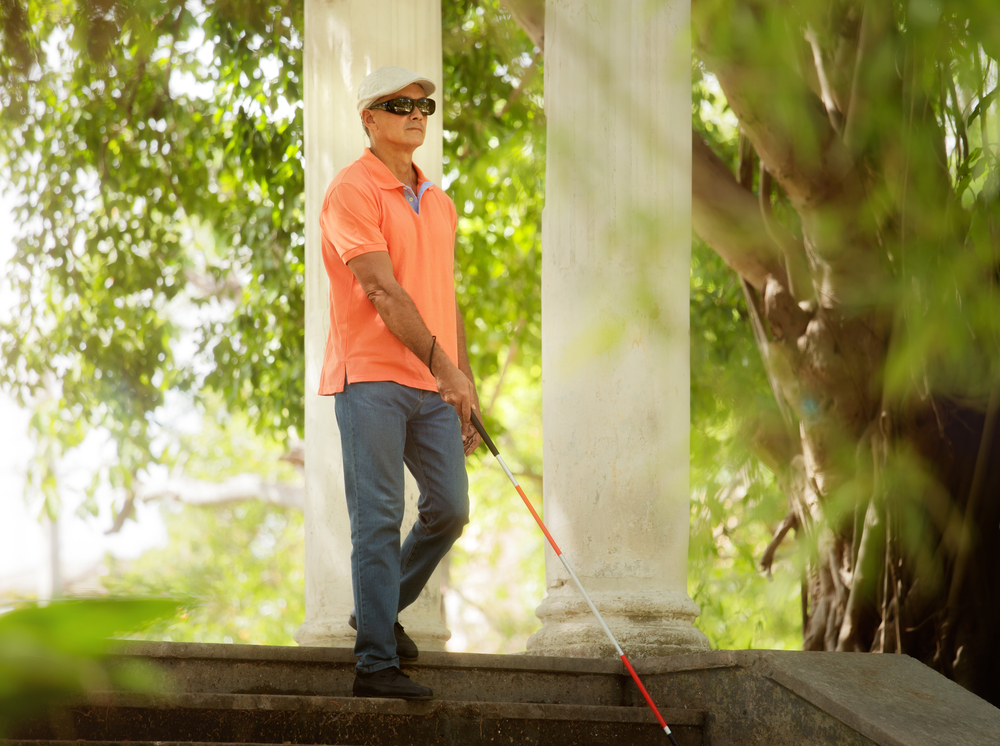Staying Safe in Your Community if You Are Blind or Low Vision

Your neighborhood is, in many ways, an extension of your home. Living independently means being able to travel within your community and utilize its resources safely and with confidence.
If your vision is declining, you may not feel as safe traveling outside your home as you once did. However, the same safety precautions you’ve always taken, plus a few extra, still apply. For example:
- Plan and memorize your route before you leave home. Travel well-lit, busy streets, and always be alert to your surroundings.
- Don’t walk in high-risk areas if you can avoid it at any time of day.
- Tell a trusted neighbor or friend when you intend to go out and when you’re likely to return, but don’t leave a note on the door telling people you are gone.
- Avoid walking alone at night.
- Always carry a cell phone; if it’s cost-prohibitive, look into programs in your community that give away cell phones that can be used to dial 911 in an emergency.
- Carry your purse or wallet close to you, and don’t carry more cash than necessary.
- Keep your purse or wallet closed until you need it. Purses should be held close or strapped over your shoulder—never dangling from your arm.
- When shopping, know what bill you hand to a clerk and ask him/her to count the change back to you. Put your money away while still at the counter.
- Many prefer debit cards to openly handling cash; don’t display large sums when paying for items when using bills.
- Have your key ready when approaching your front door.